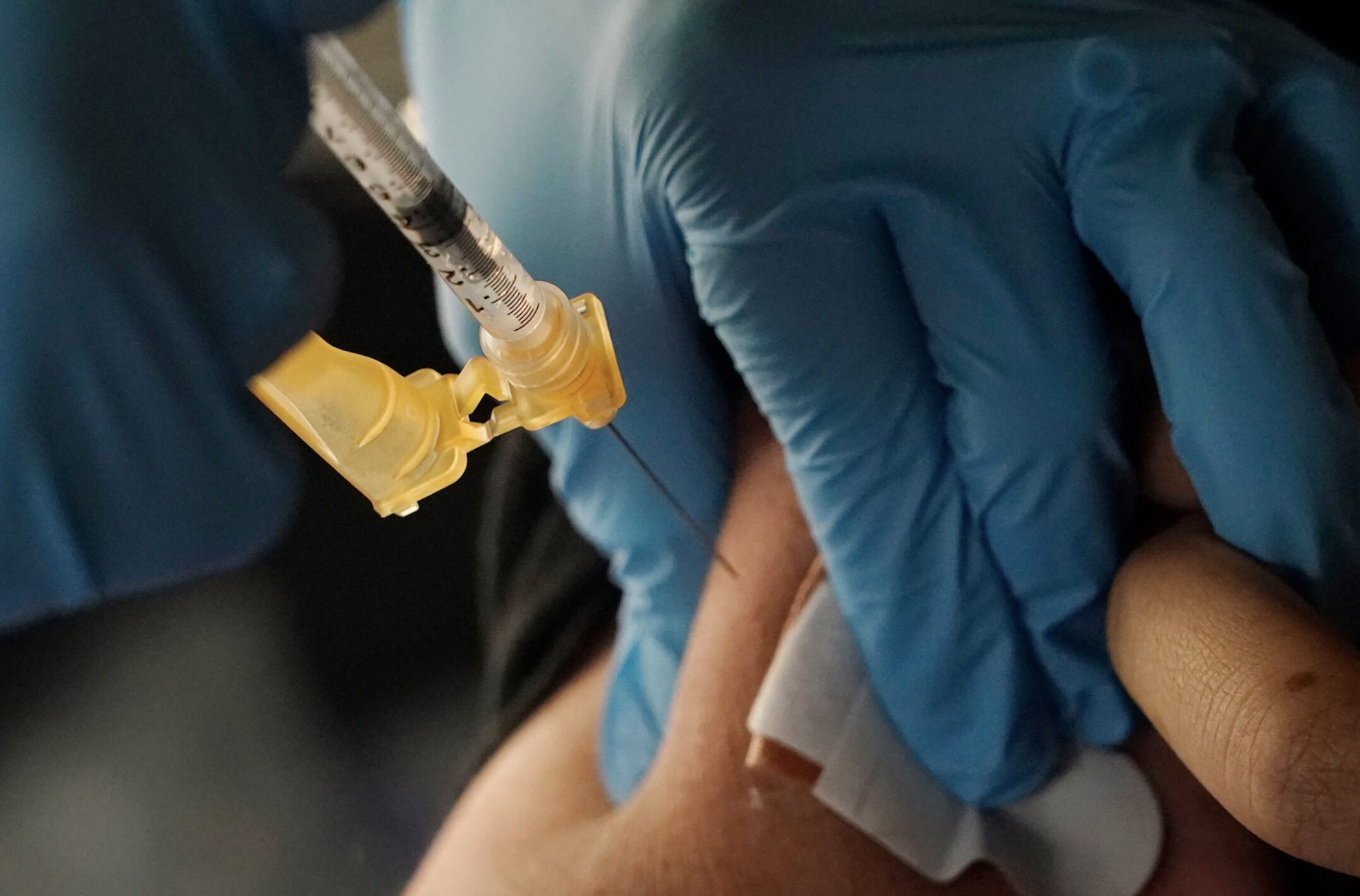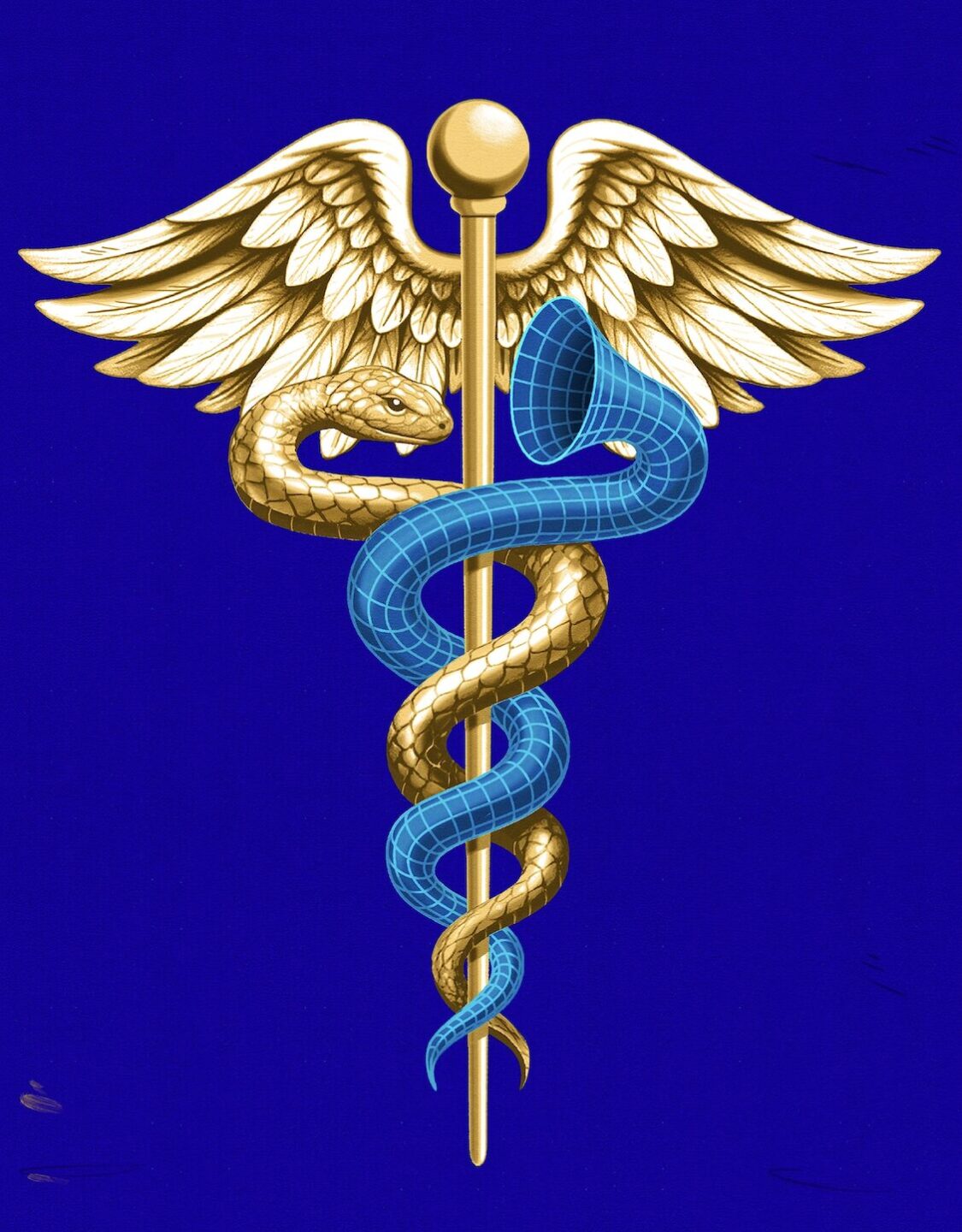“I have stage four cancer and am currently on chemo. Though fully boosted, I’m still concerned when I go shopping, etc. How cautious should I be?”
I think you should be very careful, because you are in the category of people who are immunocompromised and more vulnerable to severe outcomes from covid-19. I would highly recommend that you wear an N95 or equivalent when in public places (like grocery stores and other shops). Ask that all those you gather with test just before seeing you. And speak with your doctor to see if you qualify for Evusheld, the preventive antibody that further reduces risk for people with immunocompromise.
“What is the ‘living with endemic covid’ going to look like for the immunocompromised? Are they going to have to continue living in masked and isolated limbo indefinitely?” — Benjamin from Oregon
Short-term, those at high risk for severe illness should continue to hunker down during the omicron surge. They should be associating only with others who are vaccinated and boosted, and even those close contacts should be tested before gathering indoors. It’s essential to wear an N95, KN95 or KF94 mask in any public indoor spaces, and exposure to those settings should be limited as much as possible.
My hope is that things will change this spring when three things happen. First, there will be a lot more testing. Readily available, reliable and cheap (or better yet, free) home testing will make it easier for people to test before seeing one another. It should become the norm for grandchildren to test before visiting an at-risk grandparent, for example.
Second, on-demand treatment that renders covid-19 less deadly will become available. Such treatments already exist. Pfizer’s antiviral pill, Paxlovid, cuts hospitalization or death by nearly 90 percent. The supply is very limited, but the Biden administration has announced that it is purchasing 20 million treatment courses. We need enough so that all at-risk individuals can quickly access these pills should they test positive.
Third, immunocompromised people will be able to receive antibodies that protect them against covid-19. The Food and Drug Administration has approved Evusheld, a direct antibody infusion that is protective for about six months. People who don’t produce enough antibodies on their own should receive this injection, perhaps in combination with additional booster doses, to increase their immune protection.
Testing, treatments and preventive antibodies are all in short supply at the moment. My hope is that by the spring, or summer at the latest, there will be enough of all three so that those at high risk from covid-19 can resume more pre-pandemic activities with better protection against the virus and treatments should they become infected.
“I’m immune compromised with a kidney transplant. Am I virtually 100 percent protected double-masking including a tightly fitted N95 mask.” — Anonymous
You are in the category of individuals who are at the highest risk for covid-19. In general, people are very well-protected with a tightly fitted N95 mask, but my concern is for other settings you might be in where you won’t be wearing a mask — for example, dining with friends and relatives. If you will be maskless in these settings, it’s essential that others around you are also vaccinated and boosted, and I’d strongly urge that they all obtain rapid tests before seeing you. In areas of high community transmission, I’d advise people in your situation — individuals with severe immunocompromise — to hunker down and use every precaution.
“I am immunocompromised, vaccinated and boosted. My son-in-law is against vaccination and will not allow my grandchildren to be vaccinated (my daughter is vaccinated). How can I safely see my grandchildren again? I see them outdoors, masked, but I want to hug them and kiss them and have them spend the night with me and read them bedtime stories again. I miss them so much my heart aches, and they miss me, too. Both grandchildren want to be vaccinated, but this is not an option and I don’t believe it ever will be. I am desperate to be with my grandchildren again. Is there any way I can see them safely besides outdoors?” — Kristina from Missouri
Kristina, my heart aches for you. This is such a difficult situation for your family.
You say your son-in-law will not relent on the vaccination front, but will he agree to other types of precautions? For example, could his household quarantine for three days, then have the grandkids be tested just before they come to see you? If you trust that your daughter’s family truly will quarantine and you can administer a rapid test to the kids immediately before your visit (and, to be even safer, every day of your being together), then they can see you without restriction, at low risk to you.
“I need to get some urgent dental work completed. I’ve been vaccinated and boosted, but I am immunocompromised and have some other preexisting conditions. I live in a state where covid-19 counts have decreased by a large percentage, but, of course, there are still new cases. Do you have any suggestions as to how to make dental work as safe as possible?” — Ruth from New Jersey
I’d definitely advise that you get your urgent dental work done. Many people have put health maintenance on hold during the pandemic, delaying cancer screenings, blood pressure and diabetes checks and other essential appointments. As coronavirus cases finally decline, this is a good time to get caught up.
Dental work is different from most other indoor activities in that you cannot be masked during the procedures. But there are ways to reduce risk. Ask your dental practice what protocols they have in place. At a minimum, they should require all staff to wear high-quality masks when interacting with patients. Many places also require staff vaccinations, which would reduce their chance of contracting the coronavirus and therefore spreading it to you. Others have improved ventilation or have guidelines on physically distancing patients.
Convey your specific concerns to your dental office. Can the office make special arrangements for you? For example, could you be the first patient in the morning and be situated in the most isolated space possible? Could the office ensure that the staff members treating you are vaccinated, even if not everyone in the office is? All these steps can reduce covid-19 risk to you while keeping up your dental health.
“I’m immunocompromised due to medications for my rheumatoid arthritis and have had four doses of Moderna. I still plan to mask indoors in stores and avoid restaurants. How risky is it for me to be with my grandchildren who are in day care? They are not vaccinated yet. Their parents are all vaccinated and boosted.” — Elizabeth from Virginia
Is it practical for your grandchildren to be tested before seeing you? If so, that substantially reduces their risk to you.
If not, consider your grandchildren’s exposures. Are they of the age that they can reliably wear masks during day care? Do their parents limit their risk in other ways by, for example, not having indoor, maskless playdates and avoiding indoor restaurants? Without testing, visiting with them outdoors is still the safest option, but you might also decide that because the grandkids are taking additional precautions, you could see them indoors, too.
One additional consideration is the availability of antiviral treatments. If you have easy access to molnupiravir or paxlovid (the two pills authorized thus far to treat covid-19) or to monoclonal antibodies, that could also change your risk calculus. These treatments substantially reduce your risk of severe disease if you were to contract covid-19.
“I am in very good health and have no covid-19 risk factors other than being over 70. However, my husband has multiple health risk factors. Should I continue to mask in any situation where he would?” – Lynn from Indiana
Yes. In deciding what protective measures to keep, you should consider the risk of all members of your household. If one person still needs to mask in certain settings because they are susceptible to severe illness, everyone else should mask in those same settings, too. In your case, you would want to prevent contracting covid-19 yourself so that you don’t pass it on to your medically vulnerable husband, and I’d encourage you to mask in all situations that your husband does.
“I am an overweight 73-year-old woman with diabetes and mild asthma. I’ve been a prisoner in my home since the pandemic started trying to not get covid-19. I am fully vaccinated with two boosters and always mask. What should be my limitations now? I sure would like to shop a little again and see my son in Virginia.” — Trudy from Florida
Trudy, you should be able to do these things. You are well protected from severe illness because of your vaccination and boosters. I understand your desire to not get covid, as well as your desire to resume social activities that are meaningful to you.
You can go to the shops. Make sure you wear a well-fitting N95, KN95 or KF94 mask and keep it on the entire time you are in an indoor public space. If you are not used to wearing these masks, test them out at home and be sure there is a good seal around your face. Start with a short trip and then increase the length over time. Consider going to shops that aren’t so crowded. If people start packing in too close for your comfort, leave and come back.
I also understand the desire to visit your son. My concern for your covid-19 risk is not so much the trip itself (you can wear an N95 or equivalent during travel) but what happens once you are there. Does your son also take precautions? If not, can he be cautious for a few days before you arrive, then test before seeing you? Make sure to stay out of indoor restaurants and other crowded indoor settings while you are visiting him.
Your situation underscores the need for all of us to consider that good health is about both our physical and mental well-being, and that it needs to be considered in a holistic way. Trying to avoid covid-19 is a good goal, as is resuming activities that improve overall well-being.







